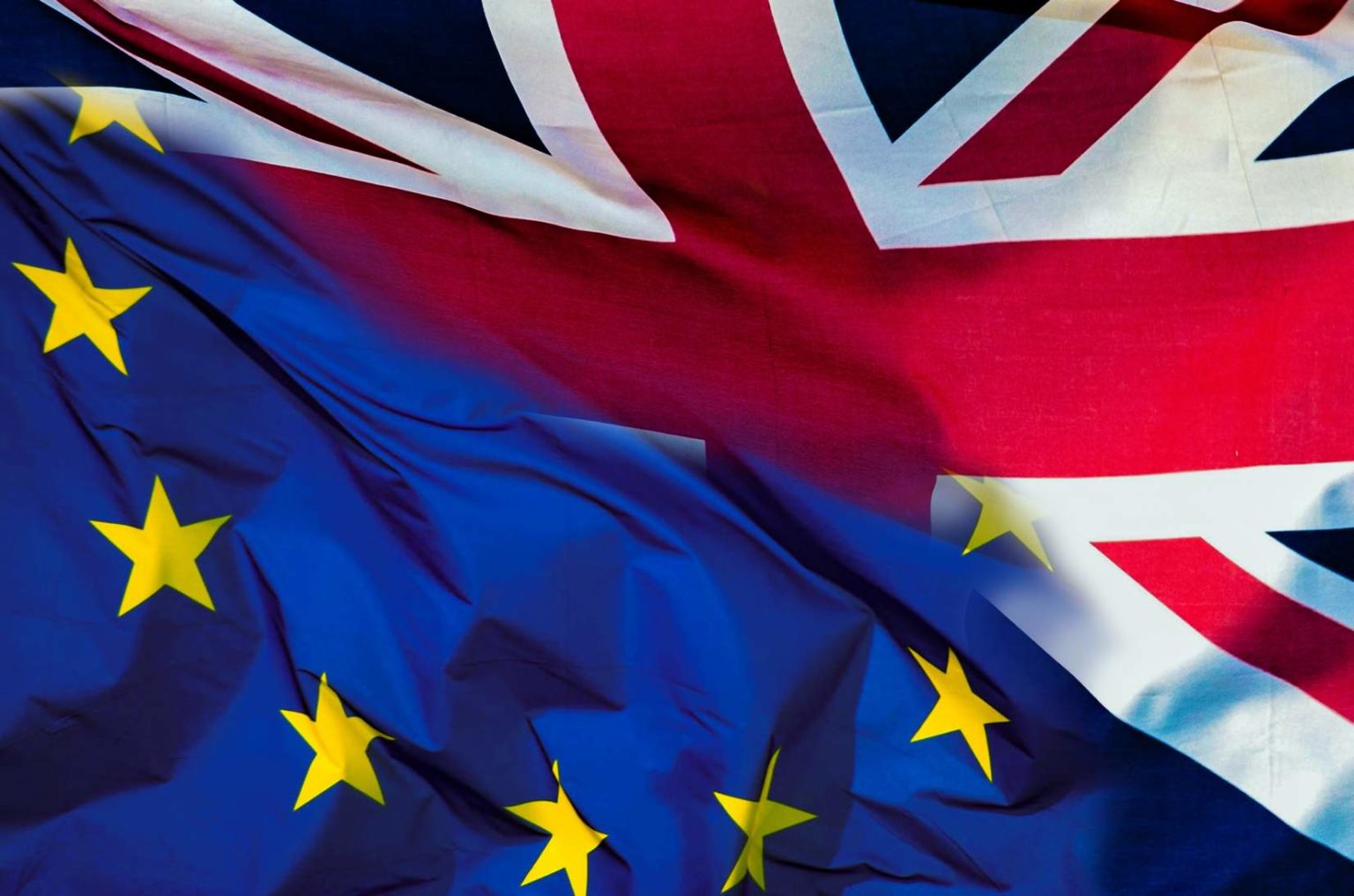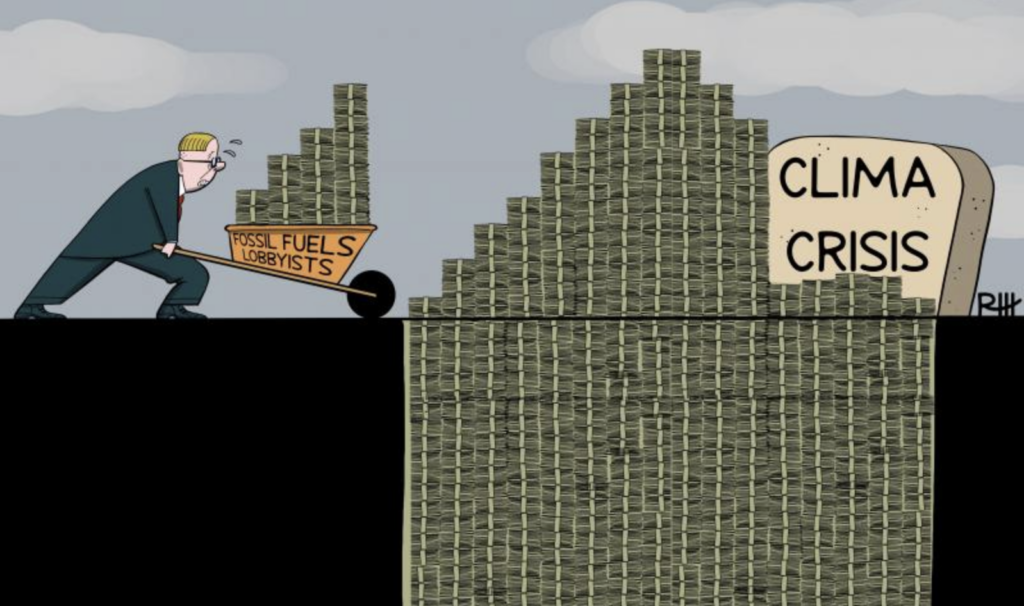Hardline Brexiters are calling on the UK government to cut EU environmental regulations to secure free-trade deals with the US, China and India after Brexit. Environmental NGOs said the plans were not credible if the UK was to fulfil its own environmental commitments, warning that the Brexit vote was not a mandate to lower standards.
The alternative Brexit plan, which is backed by former Brexit secretary David Davis and former foreign secretary Boris Johnson and was published today by the Institute of Economic Affairs (IEA), claims that if the UK continues to strengthen its regulatory environment, it will lead to “wealth destruction” and will “push people into poverty”.
The report slams the EU as saddling the UK with regulations that are “damaging to growth” and singles out environmental protection rules as one of the areas where EU regulation is “moving in an anti-competitive direction”.
It argues that if the UK harmonises its regulatory environment with the EU’s after Brexit, it would make independent trade deals with countries such as the US, China and India impossible.
The plan was produced by Shanker Singham, director of international trade and competition unit at the IEA. A former lobbyist in the US, Singham is now one of the most powerful people pushing for a hard Brexit inside Westminster.
The IEA is a free-market think-tank working out of 55 Tufton Street, a hub for right-leaning organisations which include the climate science deniers group the Global Warming Policy Foundation (GWPF).
The IEA and the GWPF are among nine organisations which have been accused of mounting a coordinated campaign to push for a hard-Brexit while promoting a deregulation agenda.
The 147-page report entitled “Plan A+: Creating a prosperous post-Brexit UK”, aims to offer an alternative plan to Theresa May’s Chequers Plan, which was rejected by the the EU at the Salzburg summit last week.
The IEA recommends the UK government seeks free-trade deals with countries outside of the EU as leverage to force the bloc to give Britain a better trade deal when it leaves the EU next March.
Cutting environmental regulation
On the environment, the authors of the alternative Brexit plan claim to be “supportive of environmental protection” but that environmental regulations “lead to increases in costs for many companies”.
They add that while environmental regulations are “sometimes valid attempts to deal with real environmental problems”, “frequently they are disguised methods of protectionism”.
Environmental campaign groups have previously warned of a “significant risk” that British environmental protections will be reduced after Brexit, despite the UK government stating otherwise.
Existing EU regulatory provisions include some of the world’s highest environmental standards on matters such as protecting natural habitat, air and water quality, waste disposal and regulation on toxic chemicals.
Donal McCarthy, senior policy officer at the RSBP, told DeSmog UK that from an environmental perspective, the IEA’s plans were not credible and were not supported by existing evidence.
“The report relies on a number of outdated and highly discredited assumptions that environmental standards are a barrier to trade. When considering the protection of wildlife for instance, it is essential that these rules are not removed,” he said.
Like what you’re reading? Donate here to support DeSmog UK‘s journalism today
His comments were echoed by David Powell, head of environment and green transition at the New Economics Foundation, who added that the public had not voted for Brexit to see a lowering on food and environmental standards.
“Environmental regulation has driven competitiveness, investment and innovation around the world,” he said, giving the example of the rapidly falling cost of renewable energy.
“There is also an extraordinary public opposition to the threat of chlorinated chickens founding their way onto UK shelves,” he added, citing a study by the Institute for Public Policy Research (IPPR) which found that less than 15 percent of UK voters want to see a relaxing of EU standards after Brexit.
McCarthy added that while reviews of existing legislation demonstrated that EU rules on the environment were fit for purpose, the emphasis should beon how these rules are implemented.
Pointing to the UK’s own domestic commitments such as the 25 Year Environment Plan, he added that “it is vital that the UK continues to cooperate with the EU on environmental issues” and that the government reassures stakeholders that it is committed to high standards.
Brexit lobbyists: Shanker Singham and the IEA
The IEA, which is registered as an educational charity, has repeatedly made the case for cutting red-tape in order to allow a US–UK free trade deal.
In a comment piece for the Times, the IEA’s director general Mark Littlewood, summarised the alternative Brexit plan as a call to align the UK’s regulatory environment with countries that may have lower standards in order to strike trade deals.
In his words: “To over-simplify, trade talks essentially come down to sitting across a table, brandishing your regulatory rulebook and then seeing what you can agree to alter, remove or align to have a smoother trading relationship with the other side before you leave the room.”
In a disclaimer published in the alternative Brexit plan, the IEA states that it takes no corporate views on any specific policy matter nor does it take views from politicians involved in determining the Brexit process.
Instead, it admits that its recommendations “may be that one particular course of action has political or electoral implications for a specific politician or political party, but this is a matter of indifference for the institute [IEA]”. ”
The IEA made headlines earlier this summer after an undercover investigation by Greenpeace’s investigation unit Unearthed and the Guardian suggested the think tank was involved in a “cash for access” system and offered potential US donors with agri-business interests access to UK ministers.
Undercover recordings showed IEA director Littlewood claiming that Singham and his team speak with environment minister Michael Gove “every three or four days, along with David Davis, Boris Johnson, Liam Fox”. The IEA denied the allegation.
Singham joined the IEA in March this year after having worked for the Legatum Institute notoriously dubbed the “Brexiters favourite think tank”.
The IEA is also one of 11 libertarian trans-Atlantic organisations lobbying for Brexit and spreading disinformation about climate change involved in shadow trade talks in Washington and London to “hash out an ‘ideal’ US–UK free trade agreement”.
The plan, which is led by Conservative MEP Daniel Hannan who runs the Initiative for Free Trade (IFT), aims to create a “blueprint” for future negotiations between the British and US governments.
Despite his connections with the networks of organisations working out of 55 Tufton Street, environmental minister Gove has repeatedly said he would oppose any lowering of food and environmental standards post Brexit.
Last week, Fox was forced to deny reports by Business Insider that he was working to scrap EU food standards in order to strike a post-Brexit deal with the Trump administration.
Writing on Twitter, Fox described the reports to be “completely untrue and “fake news”, adding: “I have consistently said that there will be no lowering of UK food standards.”
Image Credit: Brexit referendum/PublicDomainPictures/CC0 1.0
Subscribe to our newsletter
Stay up to date with DeSmog news and alerts







